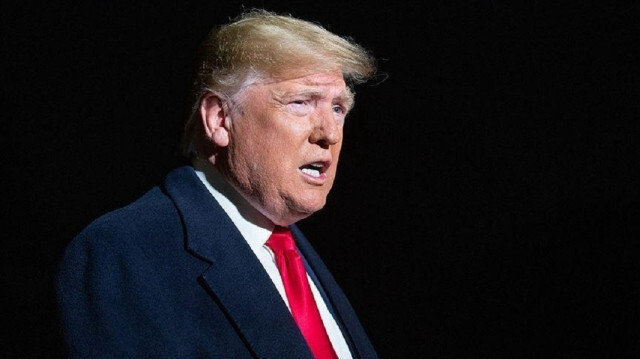
'I have a pretty substantial lead, but, you could say, yeah, yeah, you could lose. Bad things could happen. You know, things happen, but it's going to be interesting,' says Republican presidential candidate
Former US President and Republican presidential candidate Donald Trump has said the winner will be known on the night of Tuesday's election, claiming that he has "a substantial lead."
On the phone with ABC News on Sunday, Trump responded to a question about whether he thought he could lose: "I guess you could lose, can lose. I mean, that happens, right? But I think I have a pretty substantial lead, but, you could say, yeah, yeah, you could lose. Bad things could happen. You know, things happen, but it's going to be interesting."
When asked when he would address the country about the election results, Trump replied, "I'll be out there at the right time."
Regarding his campaign rallies leading up to election day, Trump said, "Nobody's ever done what I've done, and they're big rallies and tremendous enthusiasm."
In the final days of the campaign, Trump launched a blitz of battleground states. After a swing through the western states last week, he spoke at rallies in Michigan and Wisconsin on Friday, and twice in North Carolina on Saturday, with a side trip to Virginia, where he believes he can win, according to the broadcaster.
Following his interview with ABC News, Trump continued his campaign with rallies in Pennsylvania, North Carolina, and Georgia on Sunday.
Citing Brazil-based polling firm AtlasIntel, which Trump claims to be the "most accurate" pollster in 2020, he claimed to be ahead in all seven battleground states.
Arizona, Georgia, Michigan, Nevada, North Carolina, Pennsylvania, and Wisconsin are the seven key battlegrounds or swing states in this election.
Harris and Trump have each spent significant time campaigning in the states with the understanding that anyone could potentially decide the election.
The election is scheduled for Tuesday, with Americans voting not only for the future of the American presidency, but also for Congress, a number of states, and local governments.
More than 78 million Americans have cast early ballots, including about 700,000 more Democrats than Republicans, according to data published by the University of Florida Election Lab.

